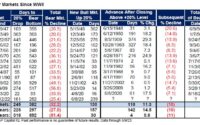Indonesia, Philippines Set to Extend Interest-Rate Pause as Inflation Ebbs
(Bloomberg) — Indonesia and the Philippines are expected to leave their key interest rates unchanged Thursday and sustain the pause through 2023, amid easing price pressures.
Most Read from Bloomberg
Decelerating inflation in the two Southeast Asian nations are providing policymakers scope to stand pat on rates. Indonesia’s headline inflation returned to the central bank’s 2%-to-4% target in May, well ahead of forecasts. In the Philippines, price gains have moderated since hitting a 14-year high in January, although they remain way above the monetary authority’s goal.
Separate Bloomberg surveys showed economists were unanimous in their expectation that Bank Indonesia will keep its seven-day reverse repurchase rate at 5.75% for the fifth straight month, and Bangko Sentral ng Pilipinas will maintain its overnight reverse repurchase rate at 6.25% for a second meeting.
With the pause on Thursday a given, the question now is: for how long? Most economists expect both central banks to stay put for the rest of the year, with rate cuts seen more likely in 2024, based on separate surveys.
Here’s what to watch for in Thursday’s decisions:
Indonesia
Bank Indonesia is expected to hold even as the rupiah faces increasing pressures.
The currency this week fell back to the psychological level of 15,000 against the US dollar as foreign funds shunned Indonesian assets. The rupiah isn’t alone, as most Asian currencies are down against the greenback amid China’s weak economic recovery and a still-hawkish Federal Reserve.
“BI will exercise caution in its response to the Fed’s latest view,” said PT Bank Mandiri economist Faisal Rachman, adding that the central bank would likely stand pat on policy rates for the remainder of 2023.
At home, the rupiah is also losing support as the trade surplus shrank to a three-year low in May. Foreign exchange reserves were depleted by nearly $5 billion last month as the central bank intervened in the currency market.
While Governor Perry Warjiyo and his board reassured in May that monetary policy will remain focused on preserving currency stability to keep inflation in check, the central bank might return to its macro-prudential toolbox.
Indonesia may consider loosening the reserve requirement ratio for banks to help spur lending and growth, PT Bank Central Asia economist David Sumual said. The Philippines will cut the required reserve ratio for lenders effective end-June.
Core inflation below 3% in the past three months in Indonesia suggest slowing demand amid weaker retail sales and manufacturing activities.
Philippines
The Philippine central bank, which opted for a so-called “prudent pause” last month after delivering 425 basis points of rate hikes since May 2022, is widely expected to extend its pause on Thursday.
Governor Felipe Medalla and his monetary board colleague, Finance chief Benjamin Diokno, have both telegraphed a hold, as price pressures cooled from a 14-year high in January. While headline inflation is still way above the central bank’s 2%-4% target, it’s seen to return to goal later this year.
“The monetary authorities will likely cite the continued slowing down of inflation as the main reason for this decision,” said Philippine National Bank research division head Alvin Arogo. “There is also no external pressure to move rates this month as the Fed paused in June.”
A rate pause will also give authorities space to assess how the central bank’s aggressive monetary tightening campaign will impact the economy. Economic growth ebbed last quarter as consumption moderated, but the Philippines still outperformed regional peers.
The Fed’s decision last week to hold supports the case for the BSP to do the same, as it eases pressure on the peso — among the better-performing currencies against the dollar in the region this month. Still, Medalla had said the central bank remains “conscious” about the impact of the interest-rate differential on the peso-dollar exchange rate.
Most Read from Bloomberg Businessweek
©2023 Bloomberg L.P.
[ad_2]
Source link


